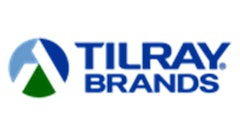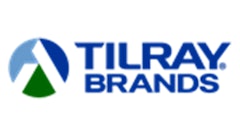
Donavan Bennett’s career is based in quality assurance—having to supervise data collection, testing methods and more for Sonoco, a packaging manufacturer. At his location in New Brunswick, N.J., Bennett has gained experience in training, product safety and more. So when he learned of the increase of cannabis recalls due to misuse of pesticides, in March, he came up with the idea to found Cannabis Quality Group (CQG), along with his partner, Joe Novalany, a programmer analyst at Rutgers University.
“We came up with Cannabis Quality Group to help cannabis companies, give them an array of integrated quality solutions on a single, secure, cloud-based platform that will help them manage whenever the states regulate more stringently their quality processes,” Bennett says.
The software, which can be applied to cultivators, dispensaries and laboratories, will provide nine streamlined solutions aimed to help business owners better execute standard operating procedures (SOPs), including:
- Audit management
- Complaint management
- Pest management
- Training management
- Risk management
- Environment management
- Supplier management
- Product specification and
- Document management
Two main production methods are the crux of the software, which are testing standardization and training management.
Because cannabis companies and their respective states are largely left to themselves to develop testing standards, they may not know, for example, if their lab is ISO 17025-certified. “Therefore, how do we know as a consumer, that we are consuming a quality product?” Bennett says. CQG is working to develop a baseline and template for those types of standards that companies can utilize for their own operations, across multiple facilities.
“The second thing I think needs to be more standardized is the training management of production because without proper training of the personnel who are growing [or] providing knowledge of the cannabis—as consumers, we run the risk of once again not receiving a quality product,” Bennett says. “So that’s why testing and training needs to be standardized first above anything else.”

^Donavan Bennett (left) and Joe Novalany (right), founders of Cannabis Quality Group
One of the most effective ways to streamline these strategies is through document control, Bennett adds. “It’s going to set the tone for how you report deficiencies, or report good practices for whatever regulatory agency you’re responsible for [reporting to],” he says. “Hopefully what we’re building with CQG with document control is going to help companies streamline the approval and training process with relevant documents that can be accessed when needed. So if you have one facility, or 15 facilities, those documents can be accessible from whichever location, because it’s all going to be housed on one central location.”
Document control, Bennett says, will help improve training as employees are promoted in the businesses.
“Practices can change year over year, depending on management. But if your document control is laid out form the beginning, it should not change, because it’s going to set the foundation from years to come,” he says.
Another practice Bennett has harnessed from his quality assurance experience is HACCP, which stands for Hazard Analysis Critical Control Points—which will mainly impact cultivators.
“HACCP is where you look at your whole production flow, and you have a flow diagram showing from when your seed is initially first put into the ground to where water is introduced the process, where light is introduced into the process, looking at any potential contaminants that can affect your products while it’s going through its growth life cycle,” he says. And if the program is developed properly, cultivators will be able to put control processes in place to reduce mitigations of chemical, biological and physical affects to the cannabis product. Bennet says CQG is also working to implement Good Agricultural Practices (GAPs) and Good Manufacturing Processes (GMPs) into the program to help establish compliance baselines.
This fall, CQG will be BETA testing its software—and is searching for 15 businesses, including dispensaries, cultivators and laboratories (big and small) to implement the software. Bennett and Novalany have also recently applied for the Canopy Boulder program, a seed-stage business accelerator based in Colorado. In the meantime, the duo is tweaking and plugging away at the software to complete the nine solutions that they envision will benefit cultivators’ SOPs for years to come.
Image credits: Cannabis Quality Group










.jpg?auto=format%2Ccompress&fit=crop&h=141&q=70&w=250)














